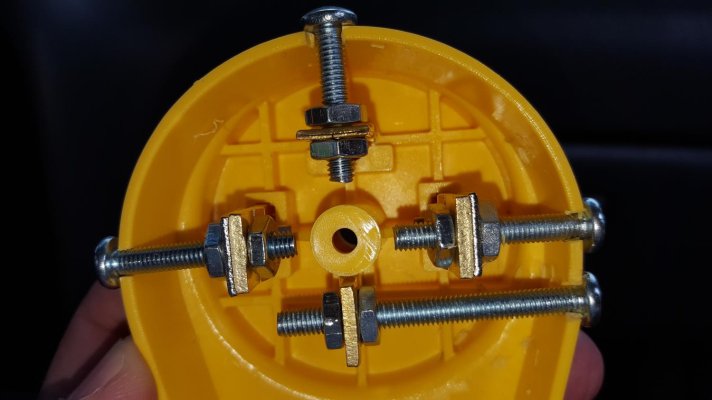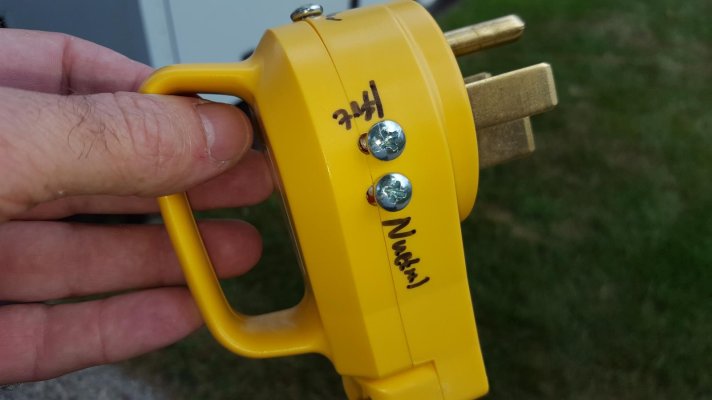Bob86ZZ4
Senior Member
Last summer I was at a campground in Virginia. When I first plugged into the 50 amp shore power my Progressive Industries EMS shut down the power to my rig because it said there was no voltage on one of the legs. I tried unplugging and plugging a couple times. As well as exercising the breaker a couple times. Still no go. I went and told the park staff high school kids of the problem. They came over with their handy tester. It was a 50 amp to 30 amp adapter, then a 30 to 20 amp plug adapter plugged into that. Then a regular receptacle tester with the two amber and one red light. They plugged it in and it showed the two amber and no red lights illuminated. They said, "you're good." I tried to explain to them why that would not show the fault. They couldn't grasp it. I'm sure they could have told me all sorts of things about my computer that I have no idea of. But, basic electrical was not in their wheel house. I took out my multi-tester volt ohm thingy and started shoving the probes into the slots to show them how to really test a 50 amp socket. Only problem is my probes weren't quite long enough to make a good connection in there and give a reliable reading. I did manage to convince them that one of the hot legs was dead. They eventually sent an electrician out and he tightened up the screws on the socket terminals and all was good.
So I went about trying to figure out how to make a good device to probe those individual terminals. I finally came up with this idea. I'm sure somebody around here is going to have a better idea, or tell me how to improve on mine. That's another great thing about this forum. I also know that having these exposed terminals does certainly create some risk. So, I'm telling you all, don't ever build one of these and try to use it. You will certainly touch the wrong terminals with your bare fingers while standing in 12" of water draining out of your black tank, and kill yourself. Just because I'm going to use it doesn't mean you should. If I jumped off the bridge would you too?
So I went about trying to figure out how to make a good device to probe those individual terminals. I finally came up with this idea. I'm sure somebody around here is going to have a better idea, or tell me how to improve on mine. That's another great thing about this forum. I also know that having these exposed terminals does certainly create some risk. So, I'm telling you all, don't ever build one of these and try to use it. You will certainly touch the wrong terminals with your bare fingers while standing in 12" of water draining out of your black tank, and kill yourself. Just because I'm going to use it doesn't mean you should. If I jumped off the bridge would you too?



